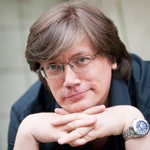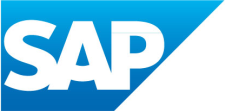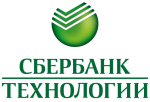
JetBrains supports CEE-SECR conference for the third year. Why is it important for the company?
We believe that one of the most important conditions for the industry development – is the development of community and ecosystem. For example, Silicon Valley achieved today’s success thanks largely to the strong community – universities, companies, investors. We try to support the formation of Russia’s technological and scientific community in many different ways: through our educational projects, and by supporting various conferences and handing out free licenses for all of our products to students and teachers. SECR – is an important part of this activity. The Conference is rather unique: it combines technological and scientific reports and thus promotes communication between scientists and practitioners.
You mentioned education programs. JetBrains is known for its numerous projects in the field. What new has happened in the last year?
Over the last year there have been several events that I think are very important. First of all, note the appearance of Baccalaureate at our partner department in the Academic University of Russian Academy of Science. We managed to create a very strong team of teachers, we received some of the strongest students in Russia, developed a program of training, based on the experience of the world’s leading universities and our own experiences in the CS Center and Masters of Academic University. The first few months have confirmed our high expectations from the project.
In the CS Center, our joint project with Yandex, this year we have created a studio for the MOOC production. We’ve already filmed three first courses; now is coming to the end their first run, and we are very pleased with the results. With MOOC we want to make great CS Center courses accessible to everyone.
Our laboratory at Mathematics and Mechanics Faculty of St. Petersburg State University, gradually turns from educational to the research project. Several scientific papers were produced this year; scientists of the laboratory speak at the conferences. In particular, there were interesting reports at SECR 2014 from Semyon Grigoriev and Daniil Berezun.
This year you moderated a roundtable about MOOC. The discussion was very interesting. Please, tell us a little about it.
Yes, this year there was a section about MOOC at SECR 2014 — apart from the panel discussion there were two excellent reports from Nikolay Vyahhi and Dmitri Kirianov. The subject of online education in general and MOOC in particular is now at the peak of its popularity. Just ended conference EdCrunch, fully dedicated to this topic. I think most of the SECR participants took one or more courses on the platforms like Coursera, EdX, Stepic, Lectorium and similar. I would say that we are now living through the third great stage in the development of online education. At the first stage the usual lectures were recorded on video and uploaded to the Internet; Examples of this approach are the MIT Open Courseware and media library Lectorium. We ourselves recorded so most of the CS Center lectures. At the second stage the same courses began to be prepared in a special way to teach online — companies like Coursera, EdX, Udacity were pioneers, now there are many new platforms, such as Stepic or new courses of Lectorium. At this stage numerous universities around the world have been involved to the production of online courses. In addition to actually teaching millions of students, consistently huge amounts of data about the behavior of students were collected: how they react to certain features of video lectures and tasks, what helps and what hinders them to acquire a material.
Upcoming now is the third stage — leaving from just copying ordinary courses to online; and creation of fundamentally new learning opportunities, using both modern technologies and accumulated data. Perhaps very soon courses will be able to dynamically adapt to each student, students will have opportunity to carry out experiments in virtual labs; and shooting of the courses will be like filming blockbusters.
Andrey, you are involved with the CEE-SECR Program Committee from 2011. What changes do you see during this time? What you may wish to the conference on its 10th anniversary?
The Conference is definitely evolving. Reports level increases from year to year. The percentage of scientific papers increases too. New areas are captured, such as robotics, for example — this year there were two distinct reports from Dmitry Soshnikov and Alexander Kirsanov. Also, for the first time was held Hackathon. JetBrains participation in the conference is also increasing from year to year — this time we presented a record number of reports; In particular, I recommend everyone to watch video of talks from Dino Esposito, Ilya Ryzhenkov, Dmitri Nesteruk and Kirill Skrygan. As for the wishes, I have two. Firstly, I would like to see even more scientific papers in the most modern areas of research. Secondly, I would like more people to attend the conference — I wish CEE-SECR 2015 have collected more than a thousand participants.
 Русский
Русский 




































